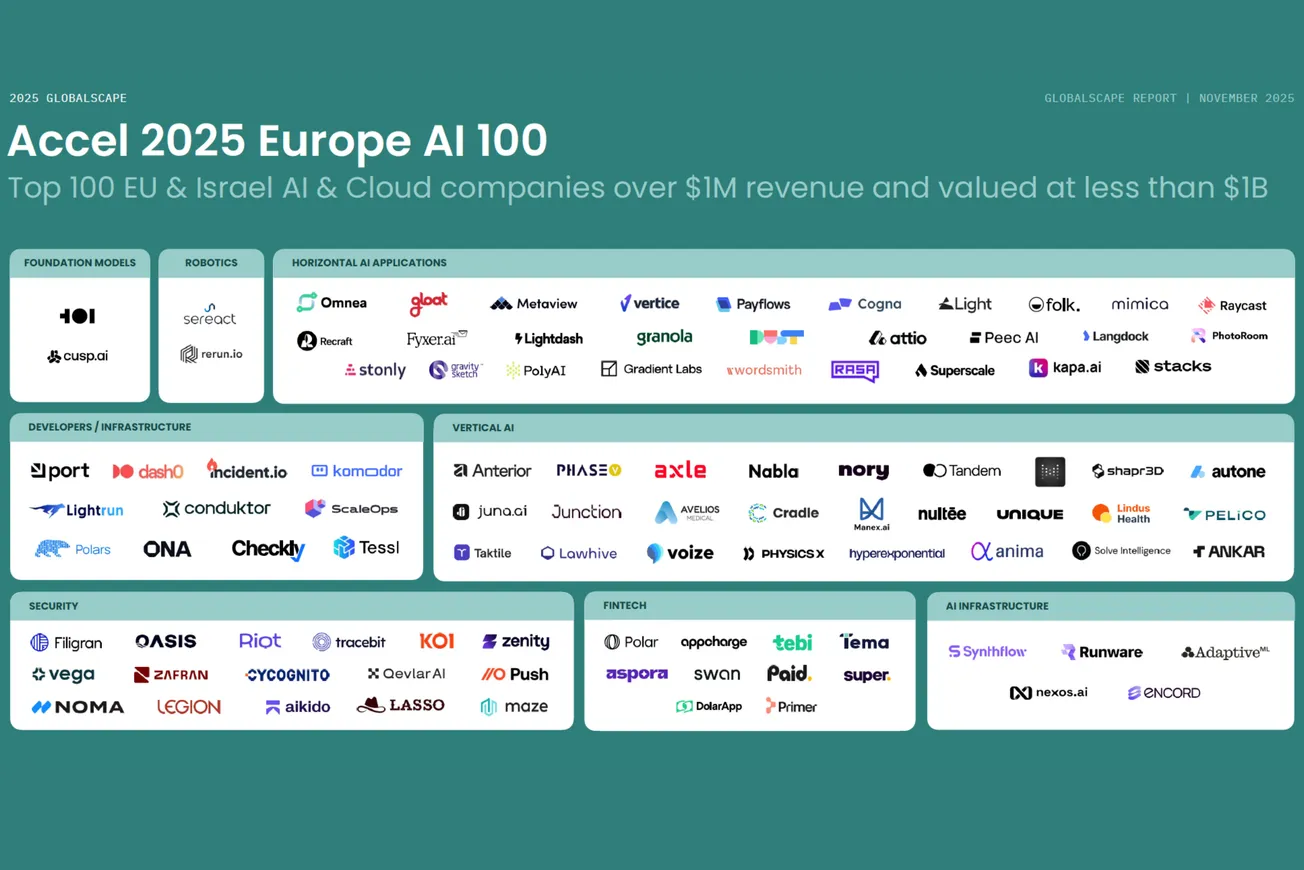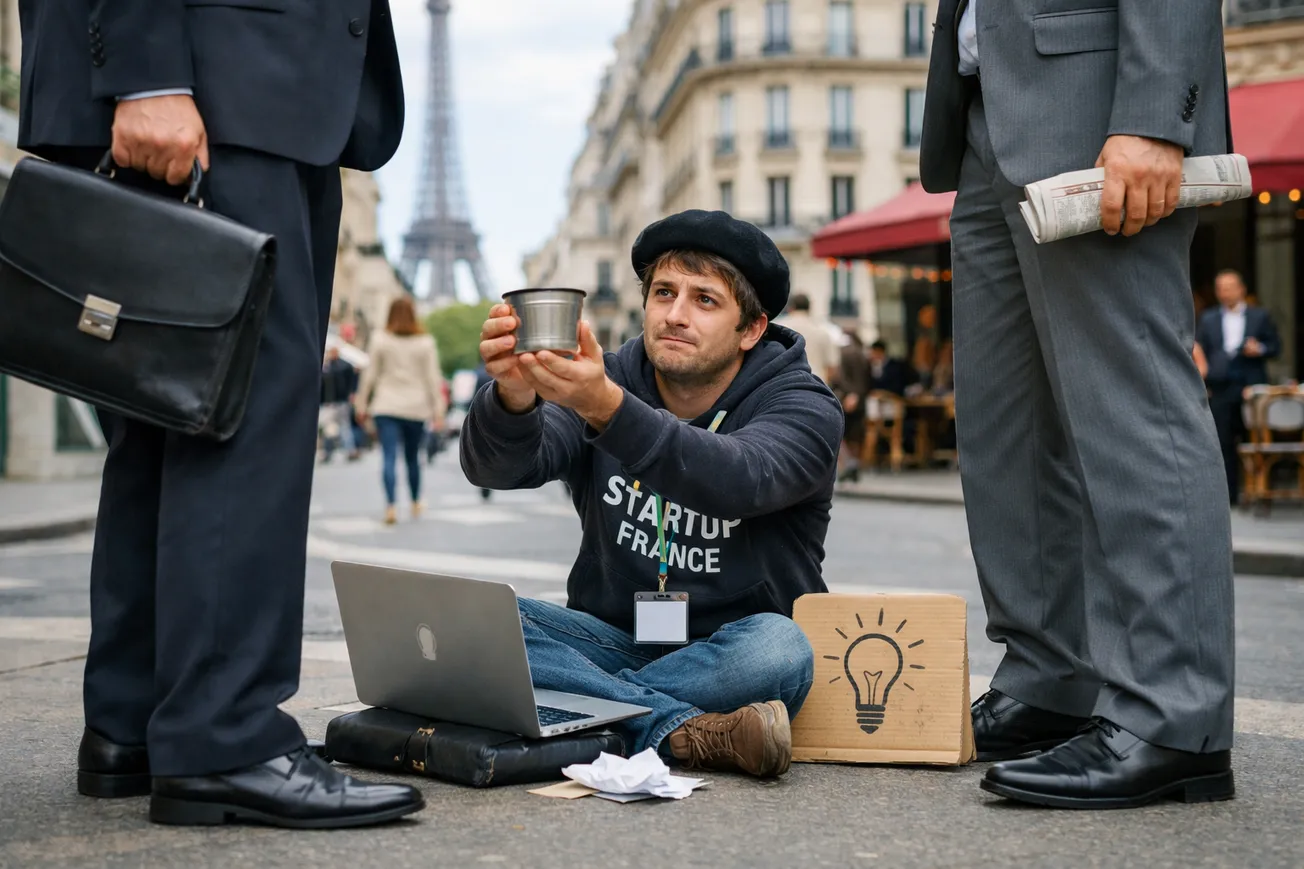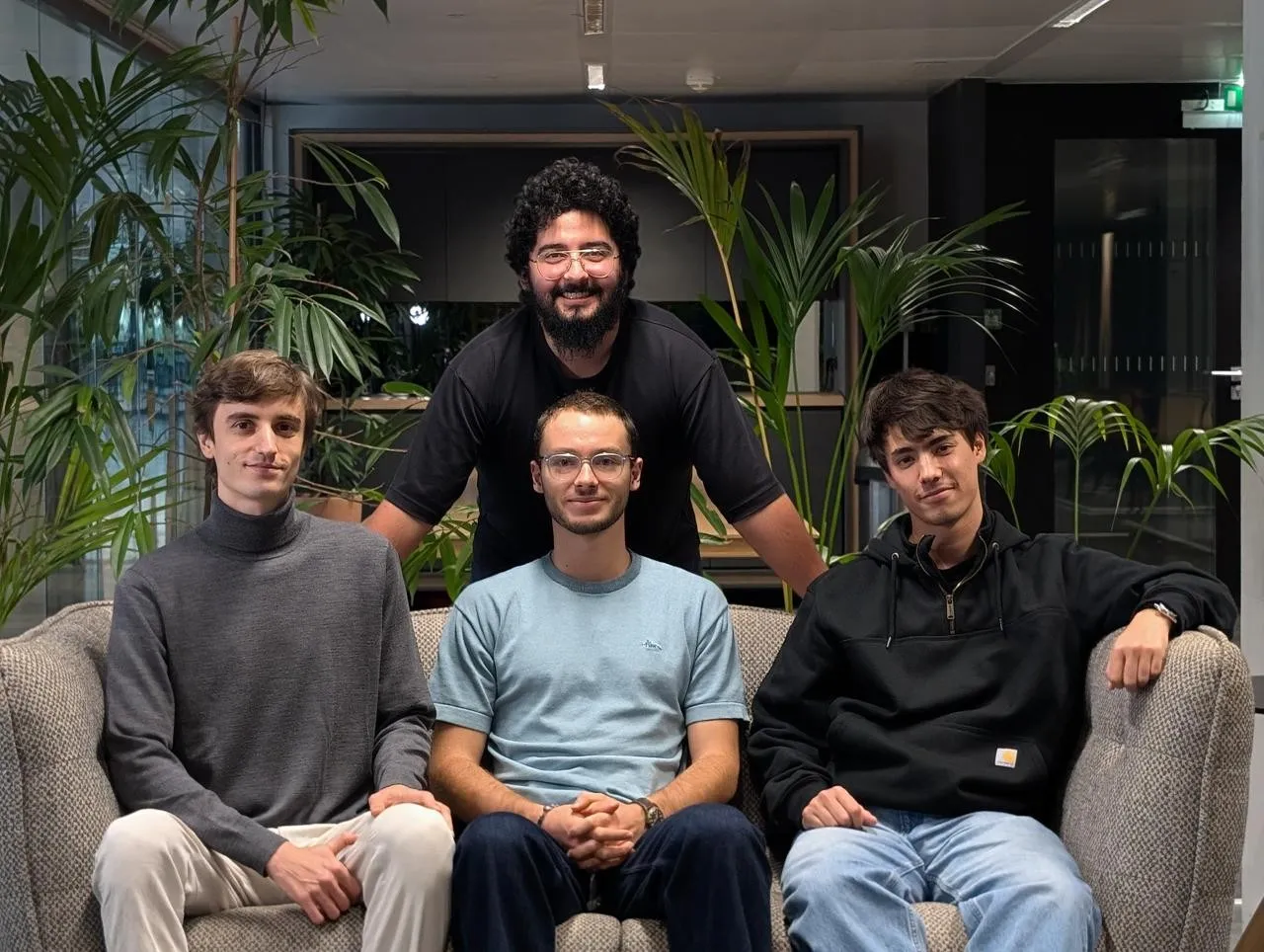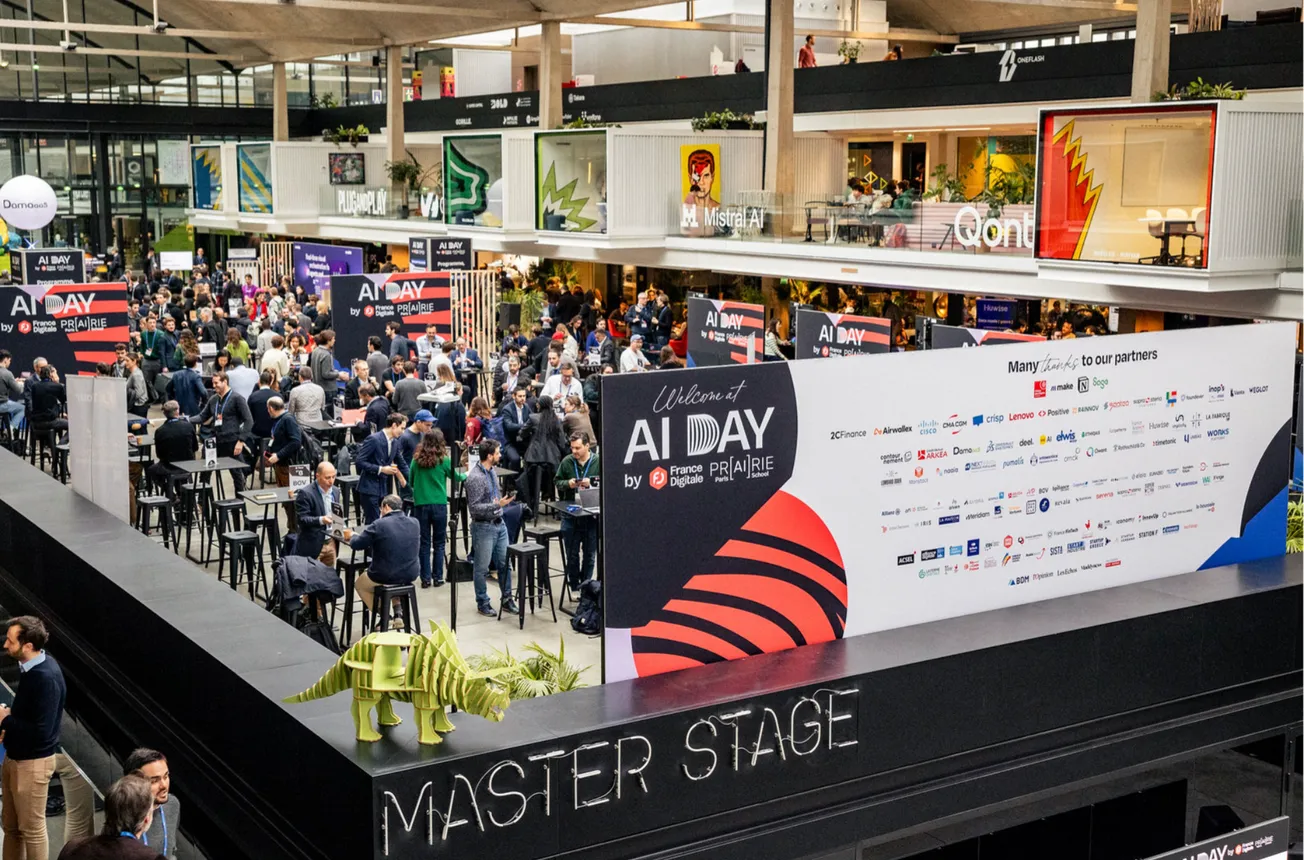For all the fretting over the apparent dominance of the U.S. when it comes to artificial intelligence, a new report from Accel Partners offers a dose of optimism for European boosters looking to make the case that their ecosystem can hold its own against their cowboy cousins across the Atlantic.
At the highest level, Accel’s 2025 Globalscape report won't contain too many surprises for anyone who follows tech and hasn't been living under a rock for the past three years.
- Public and private markets are at all-time highs thanks to AI.
- Nvidia, Microsoft, Apple, Alphabet, Amazon, and Meta are creating an unprecedented concentration of power and value.
- A handful of gargantuan AI players seem to be sucking up all the VC cash on the planet: OpenAI ($47B), Anthropic ($19B), and xAI ($15B).
- Yada, yada, yada...AI.
What's a poor old continent like Europe to do in the face of this ferocious onslaught?
Well, according to Philippe Botteri, Partner at Accel, the first thing to do is to chill out and get a little perspective on the whole thing.
Yes, the U.S. is a black hole swallowing all light. But...that is primarily true for LLM models, with France's great underdog Mistral AI being the notable exception.
Instead, take heart, Botteri said, because once you push past the model layer, the competition at the application layers looks very different between the U.S., Europe, and Israel. While not exactly level, he said, that gap is actually smaller than it has been by historic standards.
"We've been doing this report over the past 10 years," he said. "This is the highest that the ratio has been. So there is a lot of progress."

To be more precise, according to the report, the number is 66% of US levels in 2025. That is up from just 39% in 2018, showing consistent growth in European competitiveness.
"Europe is not slowing down," he said. "Europe has been able to really generate some emerging category leaders. Yes, we know that Europe doesn't have the 10s of billions of dollars to invest in companies that can create very horizontal, large models." (cough, cough, Mistral) "But when you talk about applications, Europe has a lot in terms of talent and ability to innovate and create the category leaders."
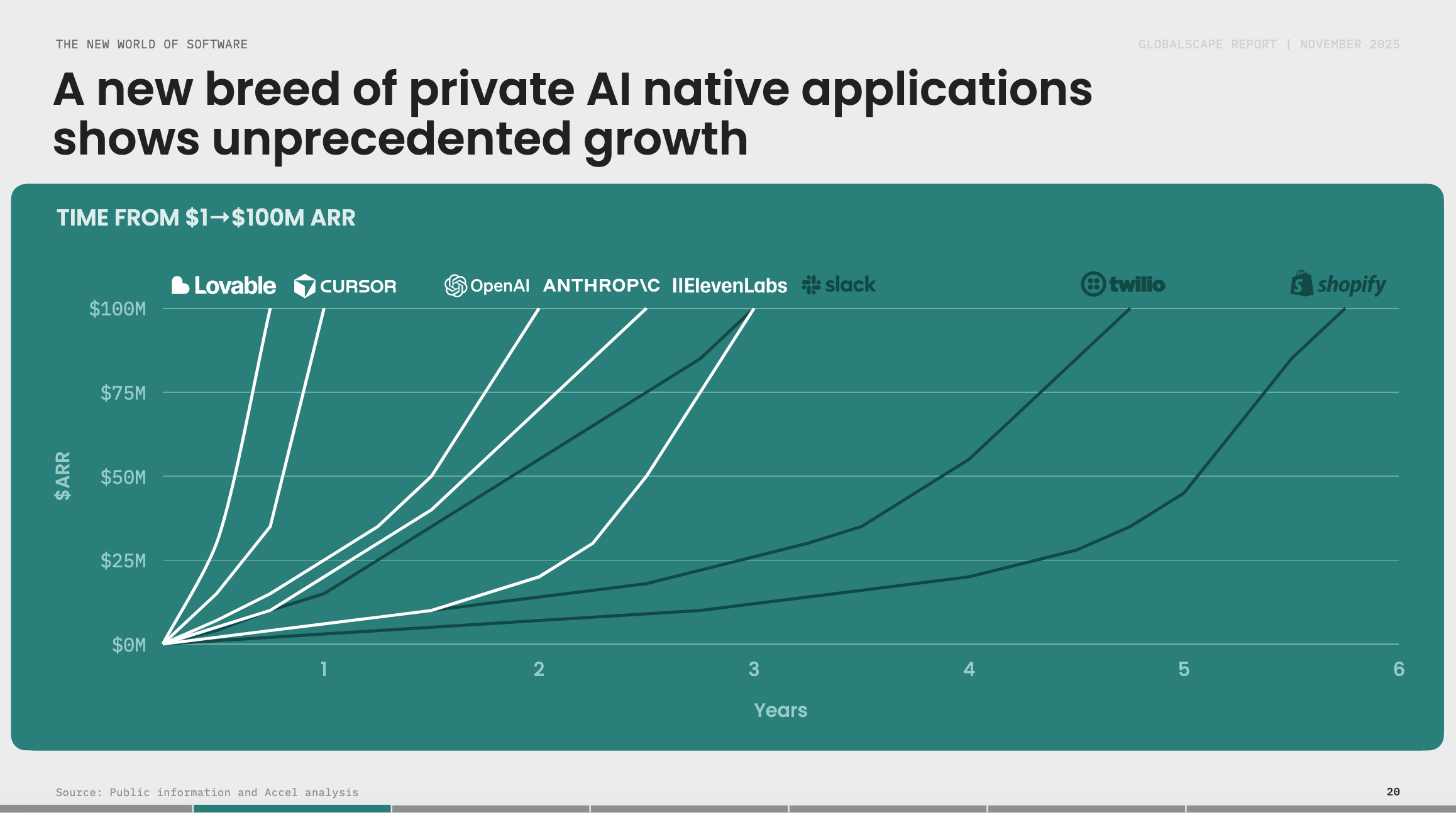
Notable global champions have emerged from across Europe and Israel, including Cyera (Tel Aviv), ElevenLabs (London), Helsing (Munich), Lovable (Stockholm), n8n (Berlin), and Synthesia (London).
France Leading European AI Innovation
France ranks second when it comes to venture capital investment in cloud and AI across Europe in 2025, according to the report. That accounts for about 18% of all VC investment in cloud and AI across Europe.
Accel’s list of 100 AI startups to watch across Europe and Israel includes 14 companies founded in France:
- Conduktor
- Payflows
- Swan
- Dust
- PhotoRoom
- H Company
- AdaptiveML
- Folk
- Filigran
- Qevlar
- Riot
- Nabla
- Pelico
- Stonly
The Compute Challenge and Opportunity
A few other interesting tidbits:
- The report highlights a massive global race for AI compute infrastructure, with an estimated $4.1 trillion in capital expenditure needed between 2026 and 2030 to build out 117GW of additional data center capacity.
While the concentration of hyperscaler investment remains primarily in the US, European nations are beginning to recognize the strategic importance of compute infrastructure. The report notes that achieving the projected AI growth requires data center revenue of $3.1 trillion by 2030, which is equivalent to increasing global GDP growth by 1-2% annually. - With 51% of professional developers now using AI tools daily and enterprises planning significant budget increases for agentic AI, the market opportunity remains vast. European companies that can deliver practical, compliant, and specialized AI solutions are well-positioned to thrive.
As agentic adoption reaches the inflection part of the S-curve over the coming years, there is likely to be a resurgence of the cloud giants as they leverage existing platforms to deploy and orchestrate new agentic workflows. - Big opportunities for European AI startups: Security and Governance, Vertical Specialization, Developer Tools, and Enterprise Integration.
"AI is really unlocking an unprecedented wave of innovation across the globe," Botteri said. "That pace we're seeing is really, really exhilarating."

